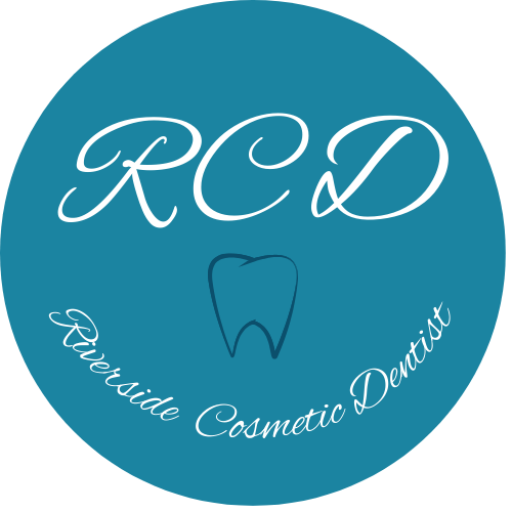Benefits of Getting Dentures in Riverside
There are many physical health benefits you can expect when getting dentures in Riverside, California. The functional value of dentures extends far beyond cosmetic restoration because they play a critical role in restoring oral biomechanics, preserving health, and enhancing quality of life. Dentures serve as an effective solution for replacing missing teeth. Missing teeth can significantly affect daily functions such as eating, speaking, and maintaining facial aesthetics. Modern dental advancements have made dentures more comfortable, natural-looking, and functional than ever before. Below are important benefits of getting dentures in Riverside.
Dentures Regulate Chewing
One of the primary benefits of dentures is their ability to restore masticatory(chewing) function. Your chewing efficiency is drastically impacted when you have many missing teeth, which can lead to nutritional deficiencies and digestive issues. Dentures help distribute occlusal forces evenly across the jawbone, allowing for improved breakdown of food during mastication. This mechanical process is essential for initiating digestion and ensuring that nutrients are more readily absorbed in the gastrointestinal tract. By restoring proper chewing function, dentures expand your dietary options and overall health.
Dentures Improve Speech Articulation
Dentures restore the necessary contact points between the tongue and oral structures, allowing for clearer pronunciation and more confident communication. Missing teeth can disrupt phonetics, particularly in the articulation of sibilant and fricative sounds such as “s,” “f,” and “th.” Speech relies heavily on the presence of anterior teeth for proper airflow and sound modulation. With dentures in place, patients often regain the ability to speak confidently and be understood clearly, reducing social anxiety and improving quality of life.
Dentures Help with Digestion Efficiency
Dentures allow for better mixing with saliva and enzymatic activity, particularly from amylase by improving the breakdown of food in the oral phase of digestion. Digestion begins in the mouth with mechanical breakdown and enzymatic activity. When teeth are missing, food particles are often swallowed in larger, less processed pieces, placing additional strain on the digestive system. Properly fitted dentures enhance oral function, enabling more effective mastication and mixing of food with saliva, which contains amylase — an enzyme critical for carbohydrate digestion. This improved pre-digestive process contributes to better nutrient assimilation and reduces gastrointestinal discomfort.
Dentures Protect Your Gums
Dentures act as a protective barrier over the gingival (gum) tissues, shielding them from trauma caused by direct contact with hard or abrasive foods. In edentulous patients, the gum ridge is often subject to excessive pressure, leading to tissue irritation, ulceration, and resorption of the alveolar bone. Well-designed dentures distribute occlusal forces uniformly, minimizing localized stress and preserving soft tissue integrity. Additionally, modern denture materials are biocompatible and designed to reduce bacterial colonization, lowering the risk of oral infections.
Dentures Provide Facial Musculature Support
Dentures help maintain facial structure by supporting the lips and cheeks, which in turn preserves a more youthful and natural appearance. Tooth loss often results in loss of vertical dimension and sunken facial features due to the resorption of the alveolar bone. Without this dental support, facial muscles may collapse inward, accelerating signs of aging such as wrinkles and jowls. By restoring proper anatomical contours, dentures not only improve function but also enhance facial aesthetics and self-confidence.
Stabilization of Remaining Teeth
For individuals with partial tooth loss, dentures prevent neighboring teeth from shifting into the vacant spaces. This maintains proper dental alignment, occlusion, and overall oral health, while also reducing the risk of further tooth loss.
Frequently Asked Questions
Should you sleep with dentures?
We recommend that you remove your dentures before sleeping. Removing dentures at night allows the oral tissues to rest and recover from the pressure and friction exerted during the day. Continuous wear, especially overnight, increases the risk of denture stomatitis—a condition caused by fungal overgrowth, typically Candida albicans, which thrives in moist environments. Allowing the gums to breathe overnight helps maintain healthy oral mucosa and prolongs the life of the denture.
Should you clean your dentures?
Yes, dentures should be cleaned daily to maintain oral hygiene and prevent the buildup of plaque, bacteria, and food particles. Proper cleaning involves brushing the dentures with a soft-bristled brush and a non-abrasive denture cleanser. Regular cleaning prevents halitosis (bad breath), staining, and potential infections. Additionally, dentures should be soaked overnight in a denture-cleaning solution to ensure thorough disinfection and to keep the material hydrated, which preserves its shape and fit.
Should you repair your dentures at home?
You should not attempt to repair dentures at home. DIY denture repairs using over-the-counter adhesives or glues can result in improper alignment, irritation of the oral tissues, or permanent damage to the denture base or acrylic teeth. Professional denture repairs ensure that the structural integrity and fit of the appliance are maintained using dental-grade materials. If your dentures are cracked, loose, or uncomfortable, contact your dentist promptly for evaluation and adjustment.
Should you whiten dentures?
While dentures can stain over time, they should not be whitened using standard teeth-whitening products. Most commercial whitening agents contain peroxide, which is ineffective on denture acrylic and may even damage the material. Instead, dentures should be cleaned regularly with products specifically designed for their care. If staining persists, your dentist may offer professional cleaning or replacement options to restore the natural appearance of your denture.
Should you chew gum while wearing dentures?
Chewing gum with dentures is generally discouraged, particularly conventional gum, as it can stick to the denture surface and dislodge the appliance. Some sugar-free gums formulated for denture wearers may be suitable in moderation, but it’s best to consult your dentist first. Improper gum use can affect the stability and suction of the denture, leading to discomfort or potential damage over time.
Should you tighten dentures at home?
You should never attempt to tighten or adjust your dentures at home. Poor-fitting dentures should always be evaluated and corrected by a dental professional. Over time, changes in the jawbone due to resorption can alter the fit of dentures, making professional relining or rebasing necessary. Home adjustments can cause uneven pressure distribution, soft tissue injury, and increased risk of fracture. Professional adjustments ensure that your dentures remain functional, comfortable, and safe.

He is always a referral for any of my friends and family wanting good professional work done. This handsome man is the MVP of Dental work, thanks again, enjoy your holiday.
Your office has such a nice atmosphere and your staff are very friendly and helpful.
Halina R











